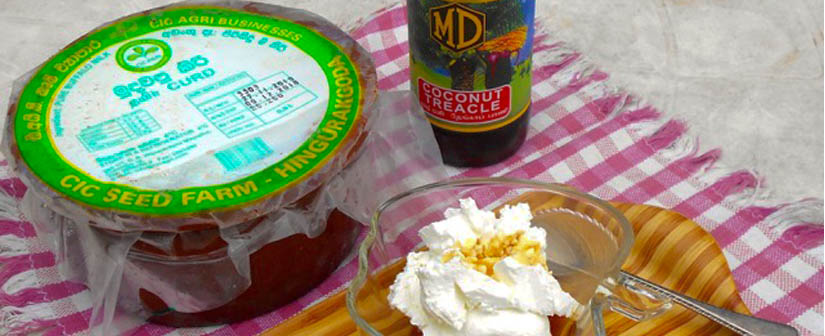Sri Lankan Buffalo curd is made from buffalo milk using a traditional, and natural, process. This begins with milk fresh from a buffalo (a couple of litres is enough) being strained (to remove any scum) into a cauldron set up on a wood fire. The milk is painstakingly stirred as it boils for a couple of hours so that the water content reduces by about 20 per cent.
The boiled milk is then poured into a clay pot and, when it has cooled, a starter, usually a spoonful of previously made Sri Lankan buffalo curd or other agents such as tamarind pulp or natural microbes, is added. The traditional way was for the clay pot to have buffalo’s urine swilled around it in it, then chucked out, to set the milk curdling.
Don’t let that put you off. Today, even village-made curd is started by adding an edible acidic substance such as lemon juice or vinegar.
Village curd is much sought after by travellers on the A2 south coast road to or from Yala. Wayside stalls with stacks of used clay pots on display, sometimes strung together and hanging from trees, advertise that curd is on sale. Curd aficionados are a fussy bunch and will not accept just any curd. “Made with milk powder,” some will say disparagingly.

How do they know? Well, the real Mee-kiri (the Sinhala word for curd) should have the consistency of cheesecake, firm and unshakable. It tastes a bit like good cheesecake too having a sour taste that is alleviated with a dash of kithul or coconut treacle (the rendered down sap from a palm tree). You eat it with a spoon as a breakfast delight or as an after lunch dessert. Curd-elicious.
If you enjoy milk products, then check out homemade cheese from the Cultural Triangle for a natural treat.
Guru’s tip
If you can’t buy curd from source, check the local supermarkets. Shun curd in plastic pots as mass produced. The best curd comes from the CIC Seed Farm (at Hingurakgoda near Polonnaruwa, not on the south coast); it’s thick and doesn’t collapse into a watery mess after a day’s storage. Rs250 for 800ml including recyclable clay pot.




